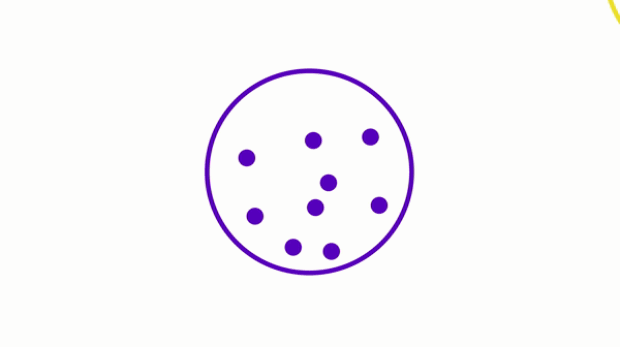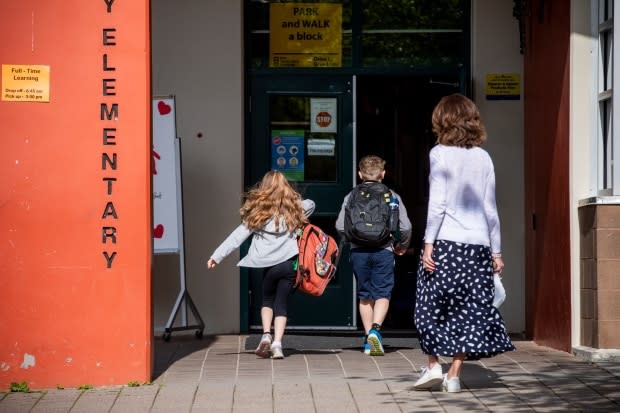Why the idea of social bubbles might need to be re-evaluated
As Ontario moves forward with its reopening plans and more people get together with friends and family, some experts say the province needs to re-evaluate how social bubbling works.
In June, the Ontario government announced it would allow social bubbles of up to 10 people.
That meant if you lived in a household of five people, you could mutually agree with another family of five to be in contact with them — no masks or physical distancing required.
For interactions involving people outside of that group of 10, you'd be expected to maintain physical distancing and wear masks when that's not possible.

Steve Joordens, a psychology professor at the University of Toronto, said while he was once a fan of that strategy, he now feels it may be providing a "false sense of security."
"Once members of our bubble start going out there and interacting, then suddenly, that whole notion that everybody within our bubble is virus-free kind of goes away. Because we don't really know," Joordens told CBC Ottawa.
Joordens said the concept particularly doesn't work well for younger folks who want to socialize and meet new people, be it friends or romantic partners.
"It almost becomes the opposite of what [it's] meant to be. It's meant to be a really safe space, but [it isn't] if one member of that bubble brings the the virus into it."
Difficult in practice
For many people, the bubbles — also known as social circles — are a conundrum, said Dr. Gerald Evans, a professor and chair of the infectious diseases division of the department of medicine at Queen's University in Kingston, Ont.
Evans said many of them can't remain pure, given that people often come into close contact with others outside their bubbles.
"What people don't fundamentally understand is that then allows for transmission of the virus from one circle to another," he said.

The challenge to maintain an "exclusive" bubble will be particularly difficult with schools opening in the fall, Evans said.
Most parents have likely been able to restrict the size of their social network during isolation, he said, but September will pose a whole new challenge.
"These are kids who have been starving for some social contact ... so it's going to be very, very difficult to control that."
'It's kind of like counting calories at this point'
Ottawa parent Ash Zade is facing that very challenge.
Zade said his family has tried to only be around those in their bubble: four grandparents and one or two families in their neighbourhood.
But he's concerned about sending his four-year-old daughter to junior kindergarten in September, given he was already running into problems with his two-year-old daughter attending home daycare, which exceeded the family's bubble limit.
His wife is an elementary school teacher, which only makes it more complicated.
"It's kind of like counting calories at this point, where you're like, 'Fruit doesn't count,'" he said. "So daycare, we don't count as [part of the] 10. Although we should."

Natalee Rubec, a mother of four who works full time from home, said if her kids return to school in September, they would all be going to four separate schools — meaning four times the exposure.
"By my calculations, it effectively opens our bubble from 10 to 15 to 18,300," she said. "It's an impossible situation."
Bubble tensions
Joordens said the habits that people are forming post-lockdown will be difficult to change, especially within families and friend groups.
"I think we had a certain safety when we were under lockdown in our own place. But now ... we're all gambling with other people's money to an extent."
He said one big anxiety-inducing issue is not knowing whether it's safe to visit grandparents or family if your bubble has expanded.
"If you're in a bubble and you feel like somebody else in the bubble is not taking things seriously — and they're thereby endangering everyone in your bubble — it leads to a lot of uncomfortable discussions and arguments."
He's also worried those who've gotten more at ease during the pandemic might not even know they're potentially putting themselves and others at risk.
"They've been living in the bubble and feeling safe and engaging in certain behaviours," he said. "[And] they don't realize their bubble has popped."

 Yahoo Sports
Yahoo Sports 